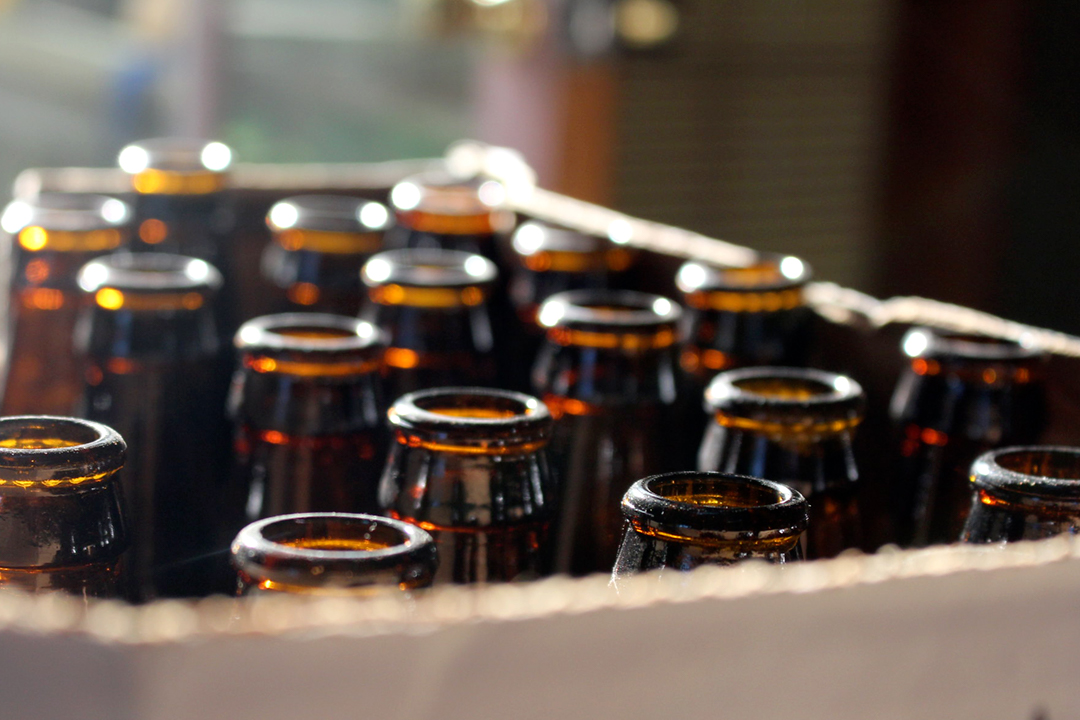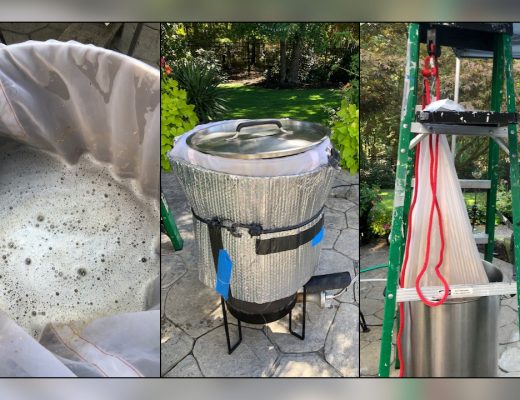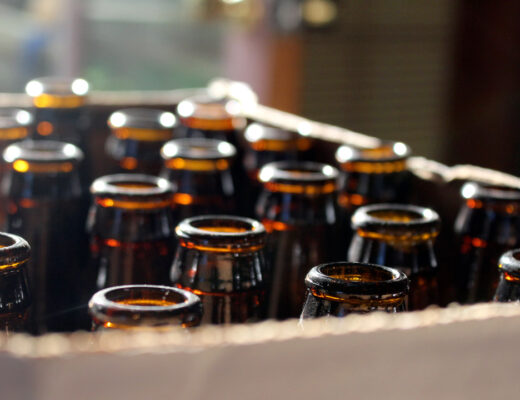So You’re Thinking about Getting into Homebrewing?
We’ll take a bit off the normal track of discussing breweries to talk about a topic that is probably the most impactful piece of the craft beer puzzle – homebrewing.
This Saturday, November 7th, is the annual American Homebrewers Association (AHA) “Learn to Homebrew Day.” On the first Saturday of each year, the AHA puts on this event in hopes of garnering attention and support for the widely adopted hobby of homebrewing. In a typical, non-COVID year, homebrewers around the country would come together to brew some beer and try to introduce potential new enthusiasts to the hobby.Find a Local Homebrew Shop
The single most important place in your homebrewing journey is the local homebrew shop. These small local businesses are the lifeblood to the homebrewing hobby and are a mecca for information and supplies. Half of the times I go because I need something, the other half I go just because. Your local homebrew shop (HBS) will be your second home, connecting you with knowledge not only from the staff, but from fellow customers. These places are incredible resources for everything homebrewing. Luckily, we have a few great options here in South Jersey. In the past 2 weeks I have been to Keg & Barrel in Berlin, Fermented in Hammonton, and Eastern Homebrew in Northfield. All are owned by knowledgeable, passionate homebrewers. All of them create a welcoming environment and will attempt to answer any question you may have. I typically end up bumping into familiar homebrew faces nearly every time I go and getting deeper into conversations about beer than time should allow. This past week I actually ran into a pair of professional brewers that just opened an incredible brewery in Atlantic City while on an emergency Maris Otter run at Eastern Homebrew. Next to your local HBS, there is perhaps no better resource than the knowledge and guidance of other homebrewers. The best place to find this is your local homebrew club. I am an active member of Brew Jersey Homebrew Club, which represents Atlantic County. Up further north they have the Ocean County Homebrewers, of which Vic is a member (and president, incase you didn’t know). I know many people in Barley Legal. Like HBS, we have a wealth of available homebrew clubs in South Jersey. I moved here from New York and didn’t have many friends in the area when I did move. Brew Jersey became a great place to meet people, and now most of the people I end up hanging out with are from the club. The club has also spawned a few South Jersey breweries over the years and the brewers/owners always make it a point to stay involved and share their knowledge with the club. I suggest you find whatever club is most convenient for you and join ASAP. You can even join more than one if you desire. Before you embark on the homebrew journey, I suggest reading some books about it. The classic is “The Complete Joy of Homebrewing” by Charlie Papazian (who is probably the most well-known person in the homebrewing world). My favorite homebrewing book is “Designing Great Beers” by Ray Daniels. This book, and the information in it, has been a tremendous resource to me. Pay special attention to the chapters on calculating gravities and the adjustments you can make to hitting target gravity. This information will be invaluable to you, especially when your brew day gets off track, which it will often. The Brewers Association also sells a lot of great books that are a bit more advanced. Many of these are style specific and very detailed once you really get into things. I personally have been reading the book on Gose by Fal Allen and the more detailed guides to Water, Malt, Hops, and Yeast. It took me a while before I actually became a member of the AHA and to sign up for their magazine “Zymurgy.” Don’t repeat my mistake. Become an AHA member as soon as you can and suck all the knowledge out of Zymurgy and other resources. In addition to Zymurgy, I also subscribe to Craft Beer & Brewing magazine. This is less homebrew focused, but does give you great homebrew recipes from their feature brewers each issue. They also give you print and digital versions which are great, and regular brewing related emails. Although more brewery level focused, there are great snippets of information that you can translate back into the homebrewing world. It is a paid subscription, but in my experience well worth the money and they do a lot to promote and give back to the craft beer community. It is amazing the resources YouTube can provide to someone starting out in homebrewing. For almost any piece of homebrew equipment, there is a guided video review or user guide for it. There are whole videos of complete brew days (I suggest skipping most of the parts). The internet, man. It’s a wonderful terrible thing. Browse it when you are stuck or have a question and there is likely a video available to help you through it. I also enjoy listening to podcasts, especially when I’m driving. For these, I turn again to Craft Beer & Brewing as they have a great weekly podcast with interviews from people in the industry. The guest they interview often harp back on some homebrewing days, as well as give a lot of insight into how they approach beer at a professional level. I have gotten a lot of tips and tricks about things such as water chemistry, hopping ratios, grain composition, and brewing big (high ABV) beers from this series alone. Another one I enjoy is the “Graining In” podcast from Bissel Brothers. Oh, and those guys from South Jersey Beer Scene occasionally cover brewing on their podcasts. Many people get introduced to the hobby with extract brewing. In this method, you use pre-made malt extract (sugars) to create wort for the beer to ferment. It is easy to do and requires less equipment, space, and cleaning, so it’s naturally a good start. This is how I started with the hobby, brewing 5-gallon extract batches in a New York City apartment kitchen. However, I was never happy with the beers I made when extract brewing. To me, they all sort of tasted the same and none never compared to what I could by at the local beer store. I didn’t love homebrewing back then. It wasn’t until I went into the world of all-grain where things really opened up for me. Being able to put together your own grain bill exponentially increases the portfolio of beers you can brew – and they will all taste better. If you really think you’re going to be in this for the long haul, you will likely make the switch to all-grain eventually. So why not just start there? It will require a bunch more equipment, cleaning, and processes, but the result will be worth it. Trust me. There are even some great all-in-one systems nowadays like the Robobrew or Grainfather that are incredibly functional without requiring a lot of space. If you are intimidated by all grain, use your local homebrew shop as a guide. I know Eric at Fermented offers guided brew days at his shop. This would be a great way to dive in. Ask any homebrewer and they will likely tell you that bottling is one of the most miserable parts of the process. It is often messy, takes a ton of time, and impacts the quality of beer you can produce. To that last part, many homebrewers carbonate their beer by adding priming sugar to it just before bottling. The remaining yeast in the beer ferments the sugar and adds carbonation. This is an extremely hit-or-miss process and that is equally likely to result in flat beer or bottle bombs. Rarely do you get the perfect desired carbonation. If I were starting again, I’d make every effort to keg my beer as soon as possible. Although it may cost a bit more upfront, it will save you an incredible amount of time in the long run. It will also give you the opportunity to dial in your carbonation and improve your beer. I now put my beer in 5-gallon ball lock Cornelius “Corny” kegs, as I make beer in 5 or 10 gallon batches. You can pick these up from any local homebrew shop. They even sell great lids that have carbonation stones in them. One of the biggest mistakes’ homebrewers make when starting out is not pitching enough yeast. The packets you get from the local HBS are great, but just throwing one in may not get the job done right unless you are making a low ABV beer. Given all of the time, effort, and energy you put into a brew day, you want to ensure you set the yeast up for optimal success. So next batch throw some extra yeast in there or better yet, make a yeast starter a day or two before. Your fermentation will thank you for the extra firepower. Don’t know what a yeast starter is? Read Books, watch videos, go to your local HBS for the answer. Homebrewing is about 10% making beer and 90% cleaning the equipment to make beer before and after you are done. If you aren’t OK with putting in the time to rigorously clean, and most likely get really wet, then this hobby is not for you. It is incredible the amount of time and energy you need to put into cleaning, but it is essential. You are making a consumable product that is very fragile to infection and spoilage. Every bit of it is agricultural and biological and delicate. You need to create the most hospitable environment for the things you do want (yeast, hops, wort) and avoid the things you don’t want (bacteria, germs, COVID). Luckily, there are a lot of great cleaning and sanitizing products out there. Two of the most essential are Powdered Brewery Wash (PBW) and StarSan. Both available at your local HBS, but rumor has it you can make your own PBW for much cheaper (I have not done this). WARNING – Star San is an acid and will eat away at your brand new stone countertops if you leave the bottle on it, which may result in damage to your countertops / you coming very close to getting murdered by your wife like I did. There’s a joke going around that some people actually get into homebrewing because they think they can brew beer for cheaper than they can buy it. I have yet to find one of these people but if I did I bet their beer would be awful. Homebrewing is an expensive, resource intensive, consuming hobby. It eats up 20s and craps out Benjamins. And worst of all, it continues to get more expensive the more you get into it. Seriously, you will spend a lot of money with this hobby. Just starting out is at least $200 in equipment and ingredients. Going all-grain will be more. If you take my advice and decide to keg, you are going to be looking at $400-$500 just to get started. Not a low cost to entry. Is it worth it? Maybe. Depends on what you want out of it and what type of person you are. It allows you to be creative, to make something real with your hands, it’s educational, it’s social, it’s science, it’s art. It is one of the best hobbies in the world. It’s rewarding. But it isn’t cheap. But what else are you going to do? Fix up old cars? Get a saltwater aquarium? Forget all that, go out and find your local homebrew shop and get started on Learn to Homebrew Day, this Saturday, November 7th, 2020. There you have it. Words of wisdom from someone who has already gone down this path towards enlightenment. I hope you enjoyed them and put some of the advice to good use on Saturday and beyond. I enjoy sharing my lessons learned and experiences, so if you have any questions don’t hesitate to reach out to me via Instagram (@shoreside_brewing) or email (shoresidebeer@gmail.com). I know it can be intimidating, but I’m here to help. Don’t hesitate to reach out. This is definitely a hobby where it pays to have a second set of hands. There’s no better way to go about it than to find a buddy that will brew with you. Half the cleaning, half the effort, half the cost. And you get to spend quality time and make something fun with a good friend, family member, or likeminded stranger. Diving into the world of homebrewing won’t be nearly as scary, time consuming, or expensive if you do it with someone else. OK – now get out there and learn to make some good beer. One of the best ways to get better at any hobby is to get independent judgement. Homebrew competitions are great ways to get feedback on your beers and make improvements. If you have happen to have some homebrew ready or that will be ready soon, you should enter into the Homebrew Harvest contest being put together by South Jersey Beer Scene. The deadline has been extended to Sunday, November 8th, so go sign up ASAP as time is running out!Join the Club(s)
Read Books
Read Magazines
Watch Videos. Listen to Podcasts
Start Small, but not Too Small
Ditch the Bottles
Pitch A Lot of Yeast
Get Used to Cleaning
Get Used to Spending Money
Bonus Advice #11. Find a Brewing Partner
Bonus Advice #12. Enter Competitions




